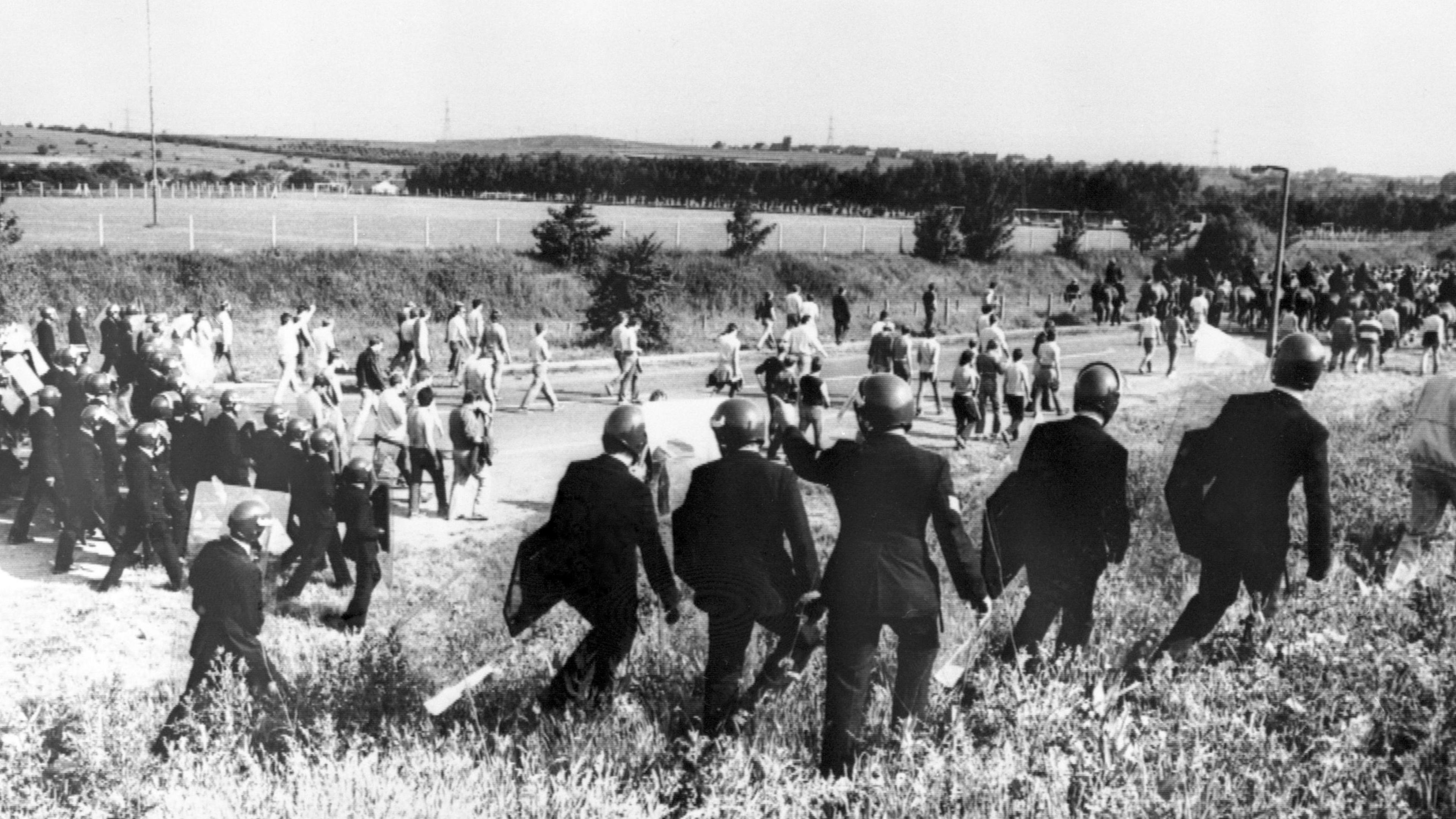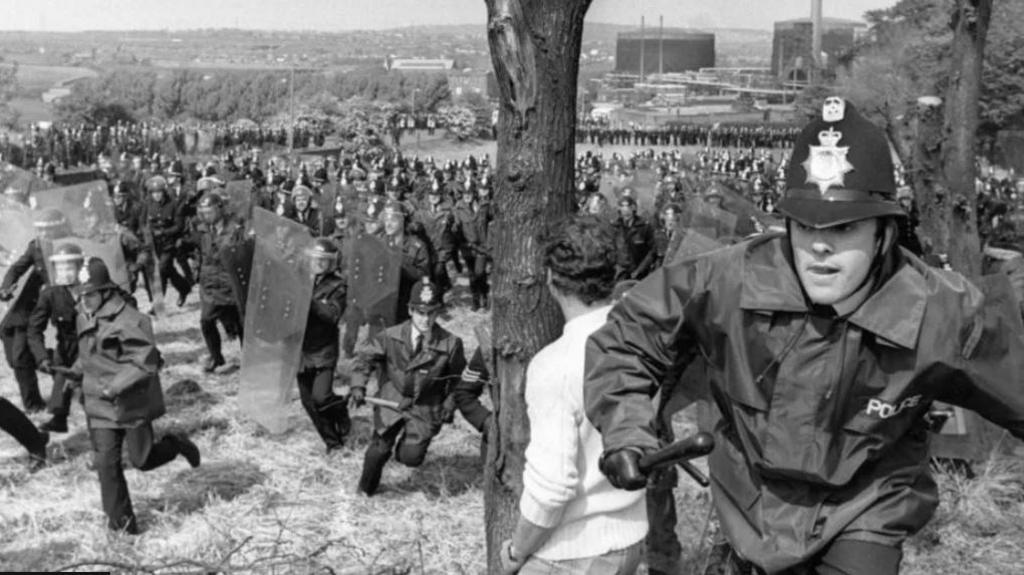Ex-miners hope Orgreave inquiry will bring answers
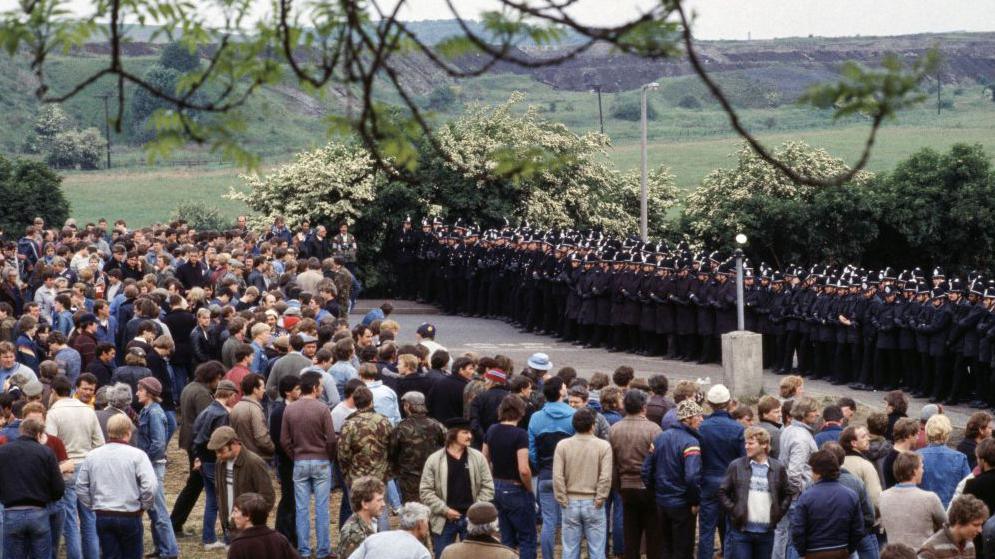
Picketing miners were hoping to disrupt supplies to the Orgreave Coking plant but were met by thousands of police officers
- Published
Former miners and campaigners have welcomed the news of a public inquiry into the violent confrontation outside Orgreave coking plant in 1984 during the year-long miner's strike.
More than 40 years after the clashes between police and striking miners, the BBC spoke to some of those present that day about what they hoped the national review would achieve.
At the start of 1984 Bob Heron was a miner at the Eppleton Colliery at Hetton-le-Hole, County Durham.
But, like tens of thousands of his colleagues, by March he had walked out in opposition to plans to shut 20 UK collieries.
And on 18 June he found himself among hundreds of striking miners heading to Orgreave, in South Yorkshire, to join a picket line outside the coking plant.
"It was really frightening the whole of that day," he recalls.
"We didn't go down there for a fight, we were down there in trainers, jeans and T-shirts and the police were down with truncheons, shields, helmets and body armour."
The events of that day would later become known as the Battle of Orgreave, after miners and police officers clashed, with more than 100 left injured.
But, Mr Heron said he and his fellow picketers had not gone with the intention of staring a fight.
"It was orchestrated by the police and the government, it was at a very high level the decisions were taken and it's time for those people to be brought to justice," he said.
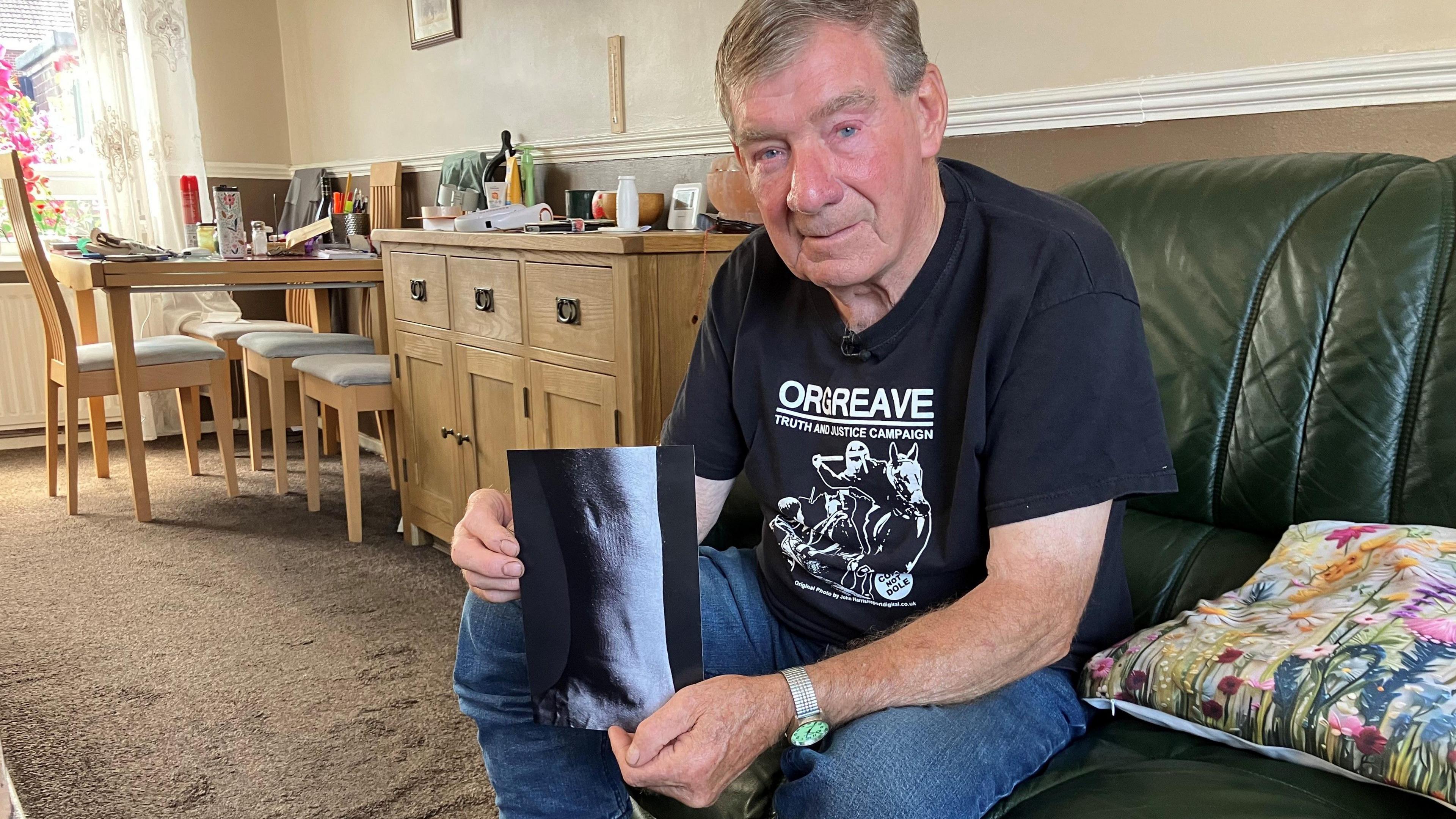
Bob Heron still has the scars after being attacked by a police dog at Orgreave
Recounting his own experience of the day he described the moment when police officers came out on horseback, causing the picket line to scatter and leaving him separated from his colleagues.
"I got pushed down the embankment and as I was getting myself together a police dog came up behind me and ripped my jeans and grabbed my leg," he said.
He managed to get the dog off but the police dog handler had shouted at him pointing to his leg.
"When I looked it was pouring with blood and my trainer was full of blood," he said.
He said the handler had told him to get behind the police lines where there were ambulances waiting and he was taken to Rotherham hospital.
He still has the scars from the bite and said it was clear to him the police had come "ready for a fight".
"It had been well orchestrated right from the beginning," he said.
"We do need to find out who was responsible right at the top."
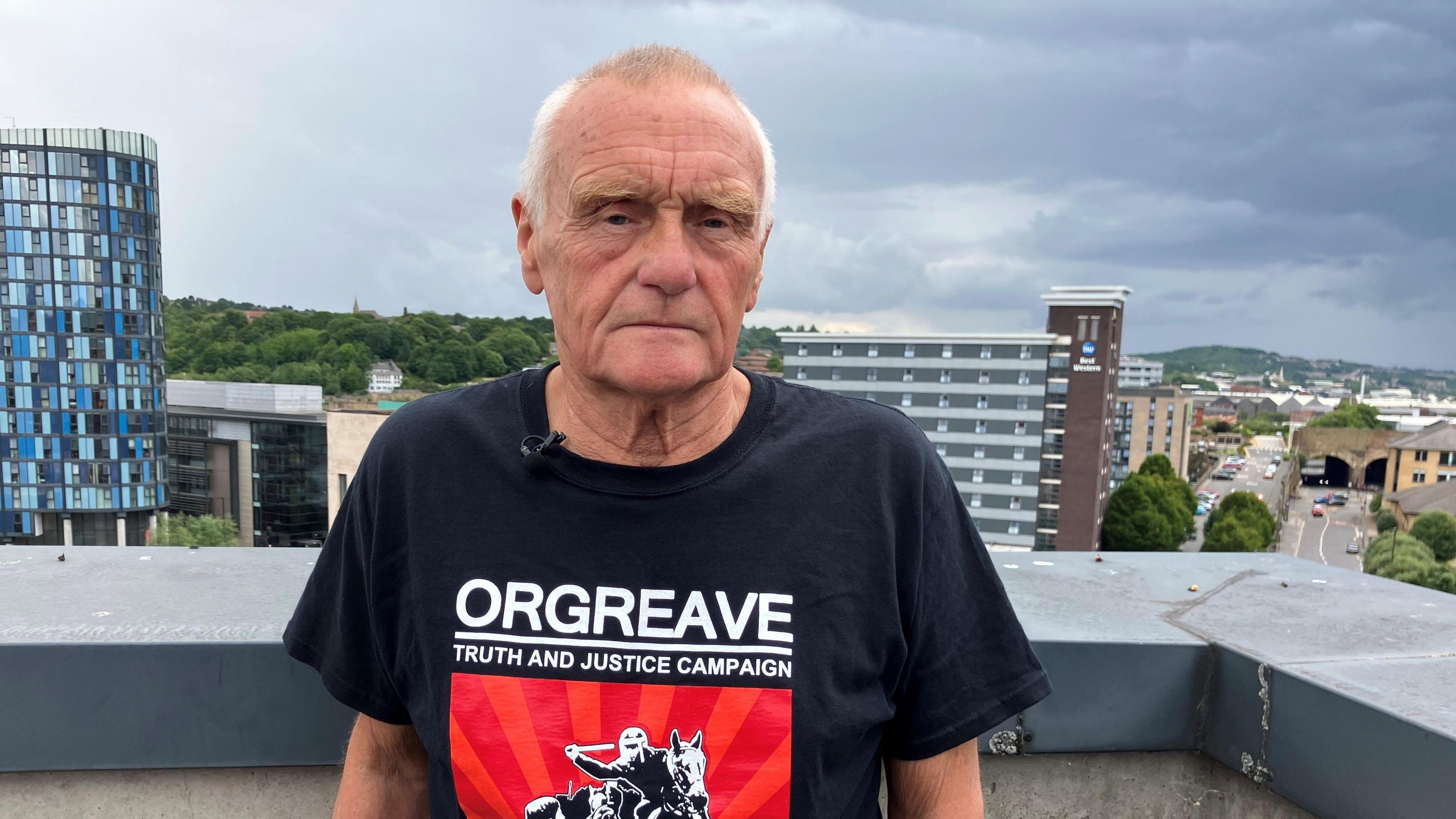
Former miner John Dunn said he and other colleagues have waited for 41 years for the truth
Former Derbyshire miner John Dunn, from the Orgreave Truth and Justice Campaign, said he hoped the inquiry will get to the truth of what happened.
"How did 6,000 police know to be waiting in full riot gear and why where they given the instructions to run rampant through innocent people?
"We only wanted a job, to feed our families, to live in a decent community.
"For that people had their head smashed, bones broken and for the 95 [miners who were arrested] the threat of life imprisonment."
Mr Dunn said he would like to think that justice could still be delivered after so long and people held to account.
"We've got to expose what happened, who gave the orders, why it was planned then."
He said they had been "denied justice" for 41 years and the inquiry was an "opportunity".
"It's our turn. We want to tell our story and the truth to be out," he said.
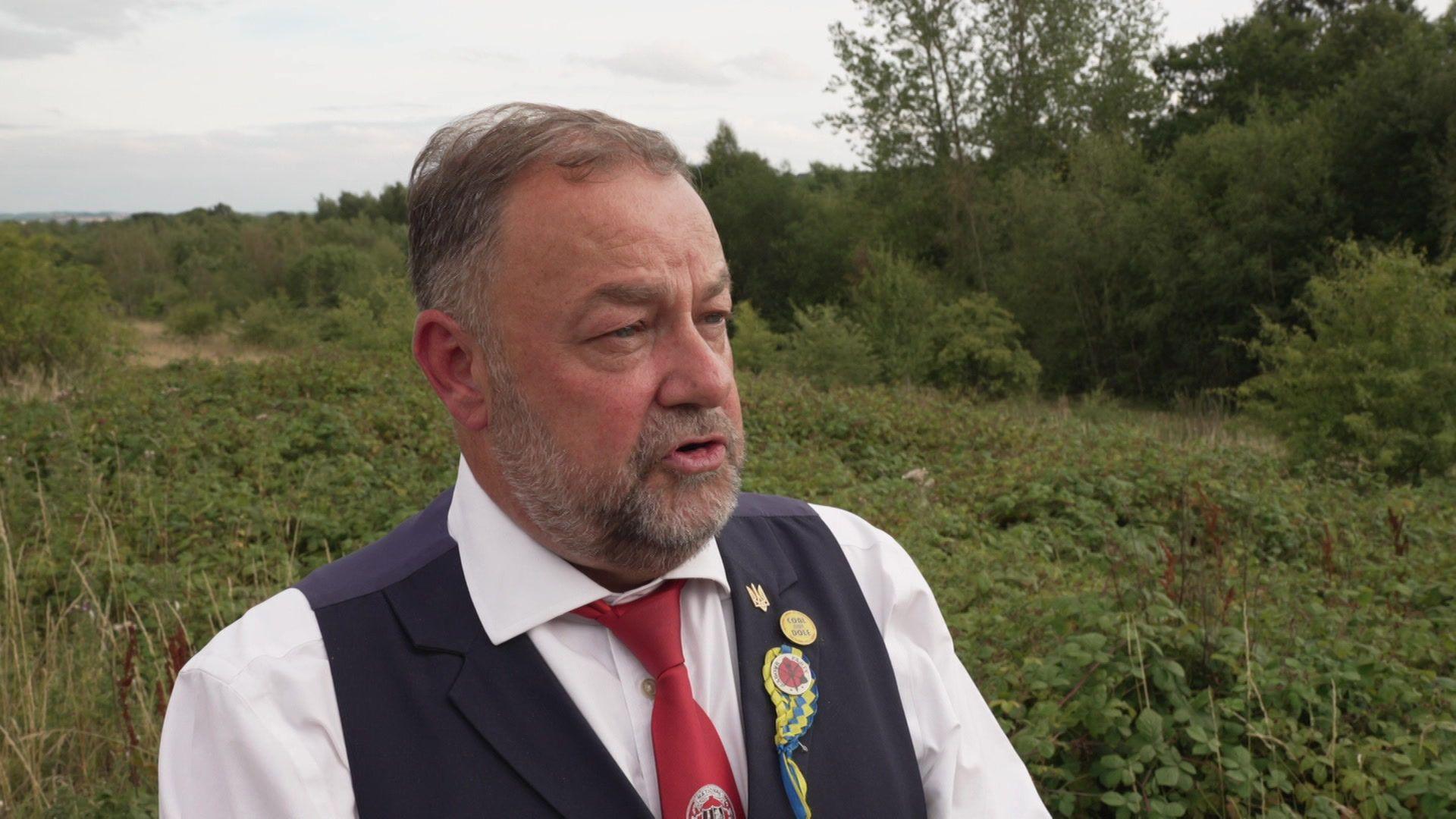
Chris Kitchen said it was time the truth of what happened was made public
Chris Kitchen was also at Orgreave in June 1984 and is now the general secretary of the National Union of Mineworkers.
He said the inquiry was a "long-time coming".
"We need to show that we were actually the victims and we were being manipulated at the time for political reasons."
Mr Kitchen said what happened at Orgreave was well-documented, but it had happened at picket lines across the country in 1984 and it was essential no other industry faced that kind of action.
"There shouldn't be a price on justice, and that justice shouldn't be time-barred," he said.
"We need to make sure the inquiry gets to the bottom of what did happen so protections can be put in place.
"There are people that suffered and that are still suffering from what happened 41 years ago and they deserve the truth to get out."
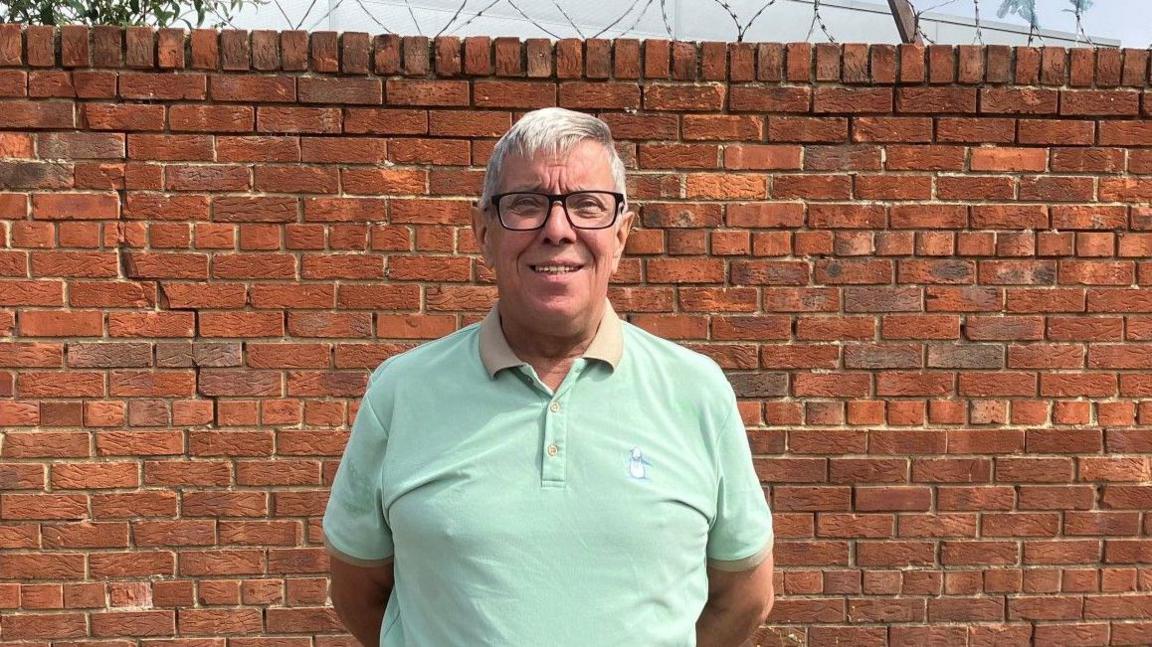
Alan Mardghum said Orgreave resulted in a "total lack of faith" in the police in mining communities
Alan Mardghum, from Durham Miners Association, vividly recalls the men who came home to the North East after Orgreave.
"They were traumatised, they had never seen that level of violence, it was new in a British industrial dispute," he said.
"The lads that were there went through the mill, they remember it like yesterday."
He said the biggest impact was a "total lack of faith in the police", saying: "It was a shock to the system to see British policemen acting like that."
He said while he was pleased there would be a full inquiry he hoped it would have access to all the papers, even those embargoed until decades from now, and said it was a regret many papers and evidence from the period had been destroyed.
"I hope its a full inquiry, I hope they look and ask who gave the orders for multiple police forces to be deployed, who gave the orders for them to be tooled up with riot gear, with horses, with riot shields, batons and truncheons.
"It was like a military offensive and that needs to be addressed."
He said hundreds of miners had been "seriously injured" and "we saw people changing film around to make it look like the miners had instigated the violence".
"That was totally untrue and we need that to come out and the responsible people need to be held to account."
Announcing the inquiry Home Secretary Yvette Cooper said the events of 18 June 1984 had "raised concerns that have been left unanswered for decades, and we must now establish what happened".
She said together with campaigners she would work to support the Rt Revd Dr Pete Wilcox, the Bishop of Sheffield, who will lead the review, in order to "build an inquiry that gets the answers they and their communities deserve."
Get in touch
Tell us which stories we should cover in Yorkshire
Listen to highlights from South Yorkshire on BBC Sounds, catch up with the latest episode of Look North or tell us a story you think we should be covering here, external.
Related topics
- Published21 July
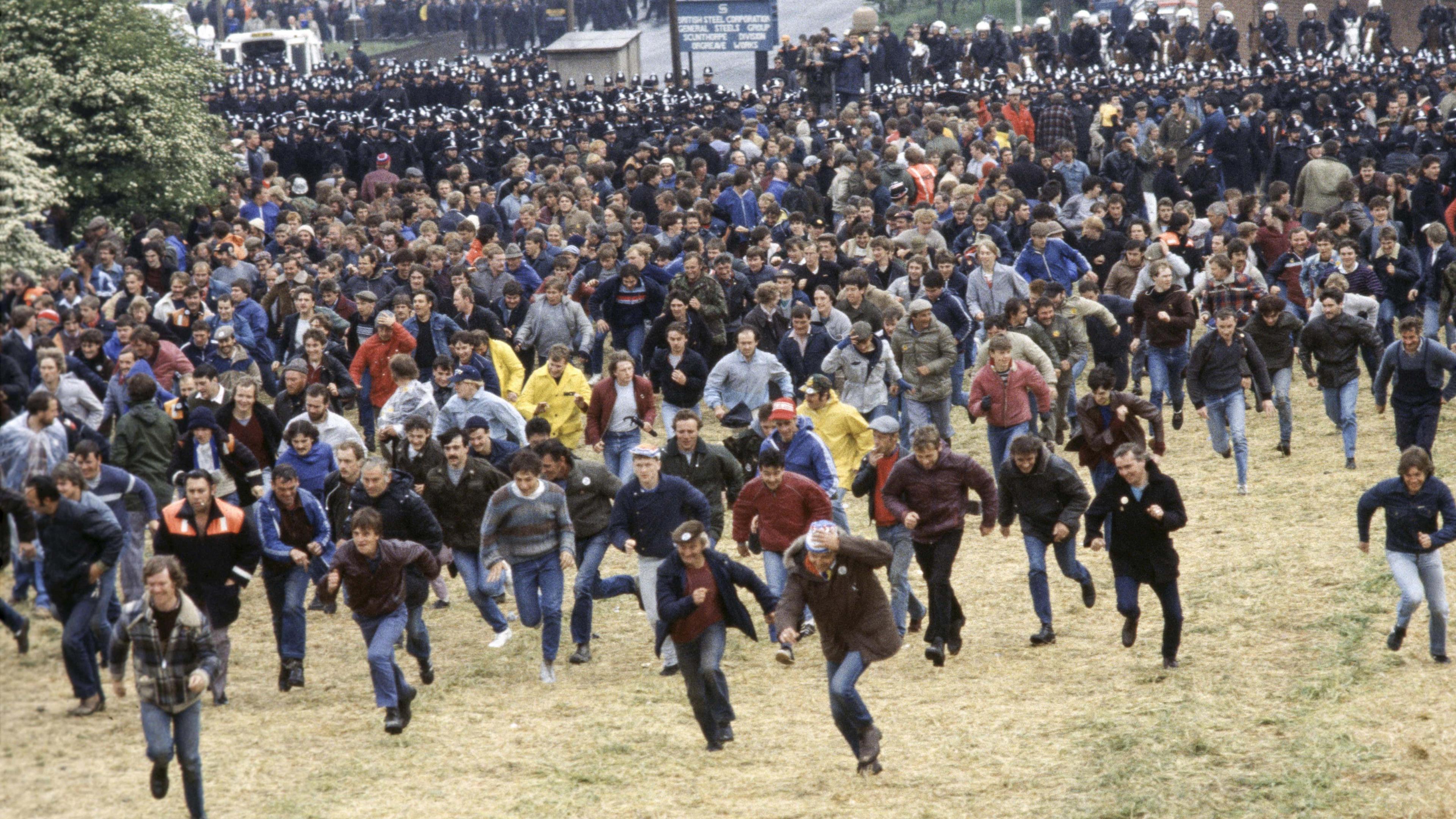
- Published14 June 2024
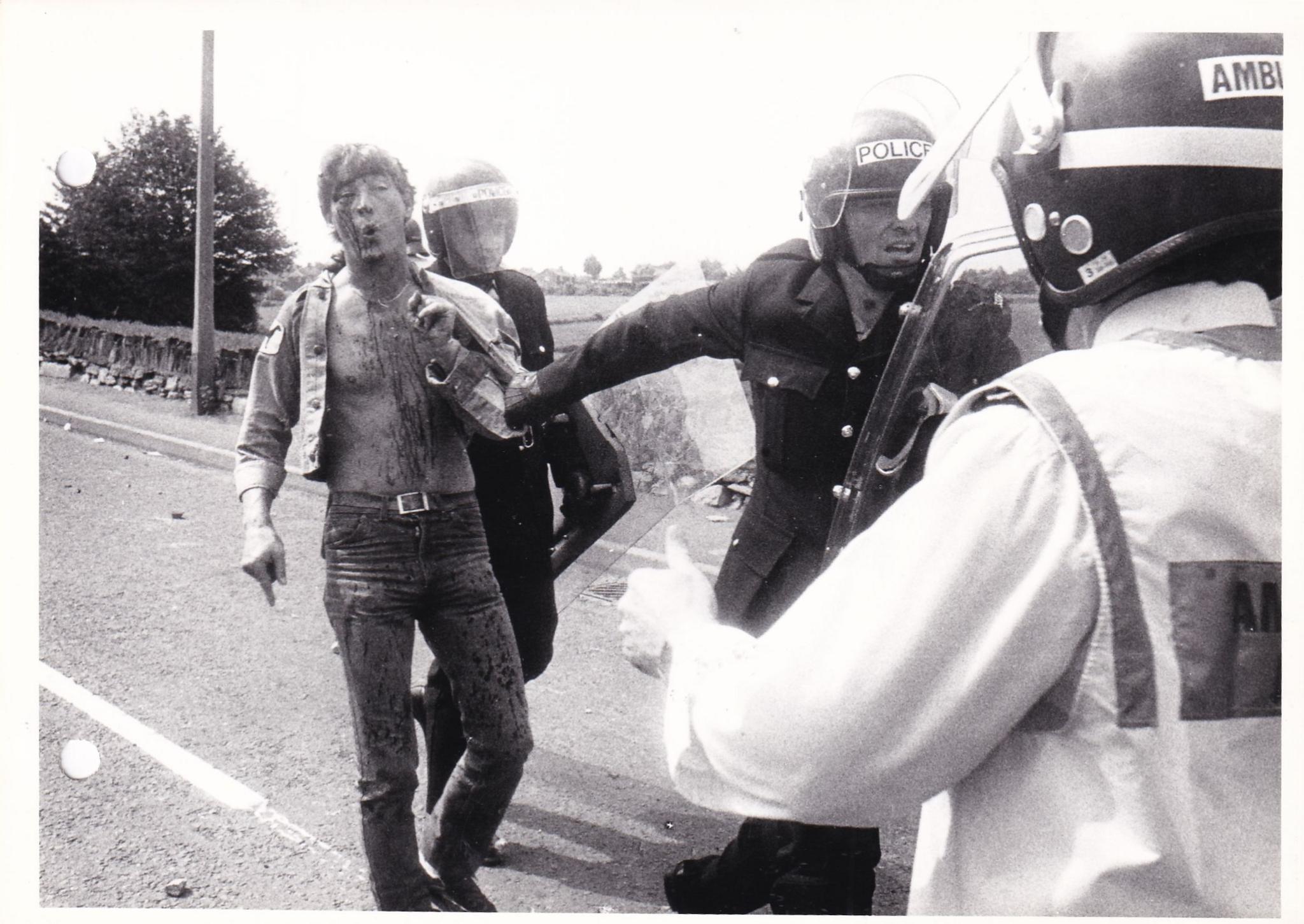
- Published15 June 2024
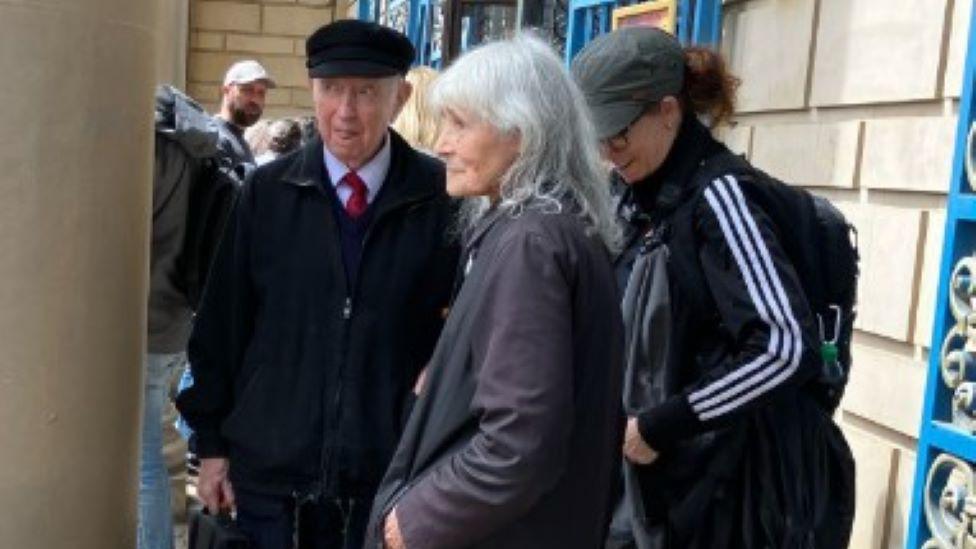
- Published21 July
